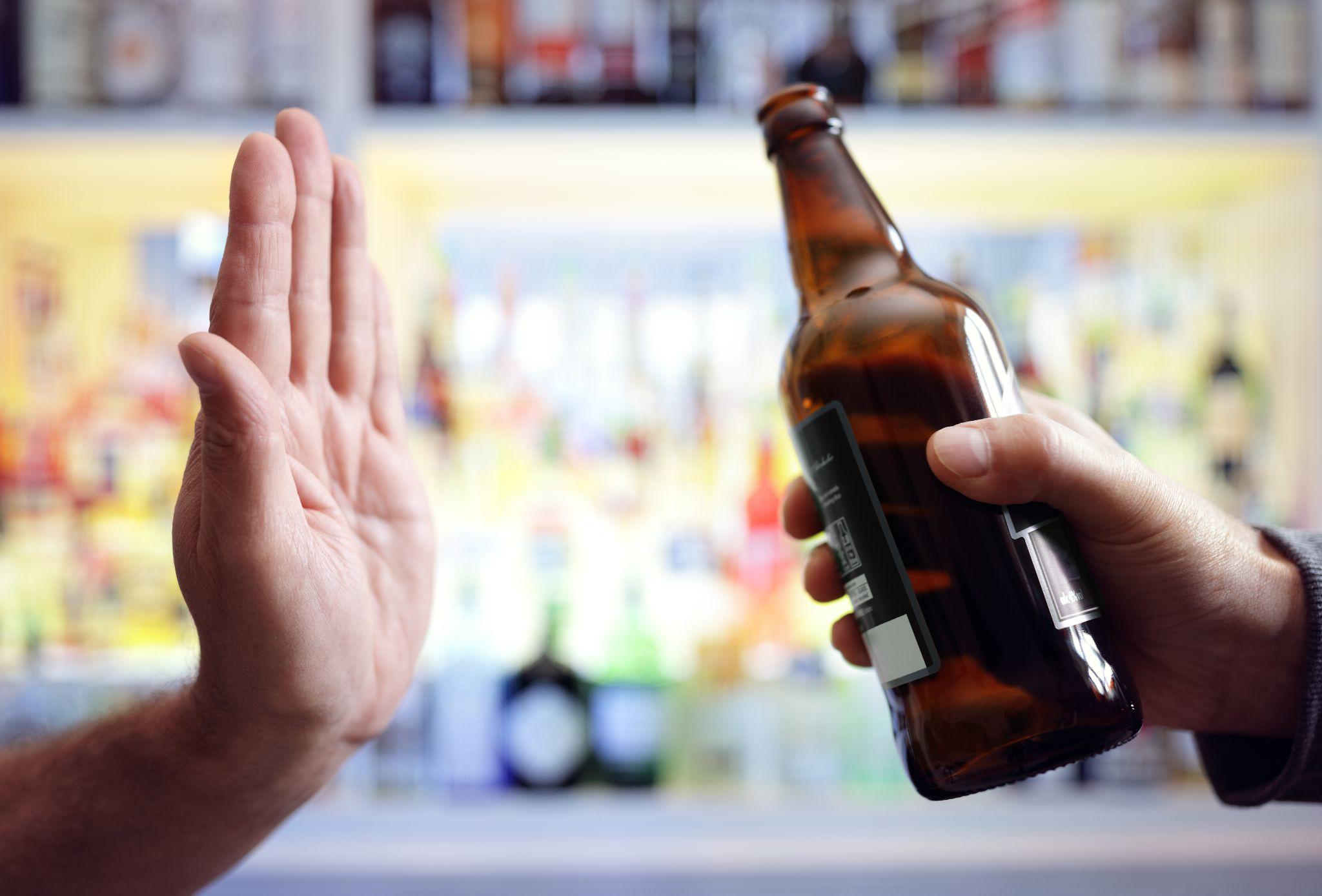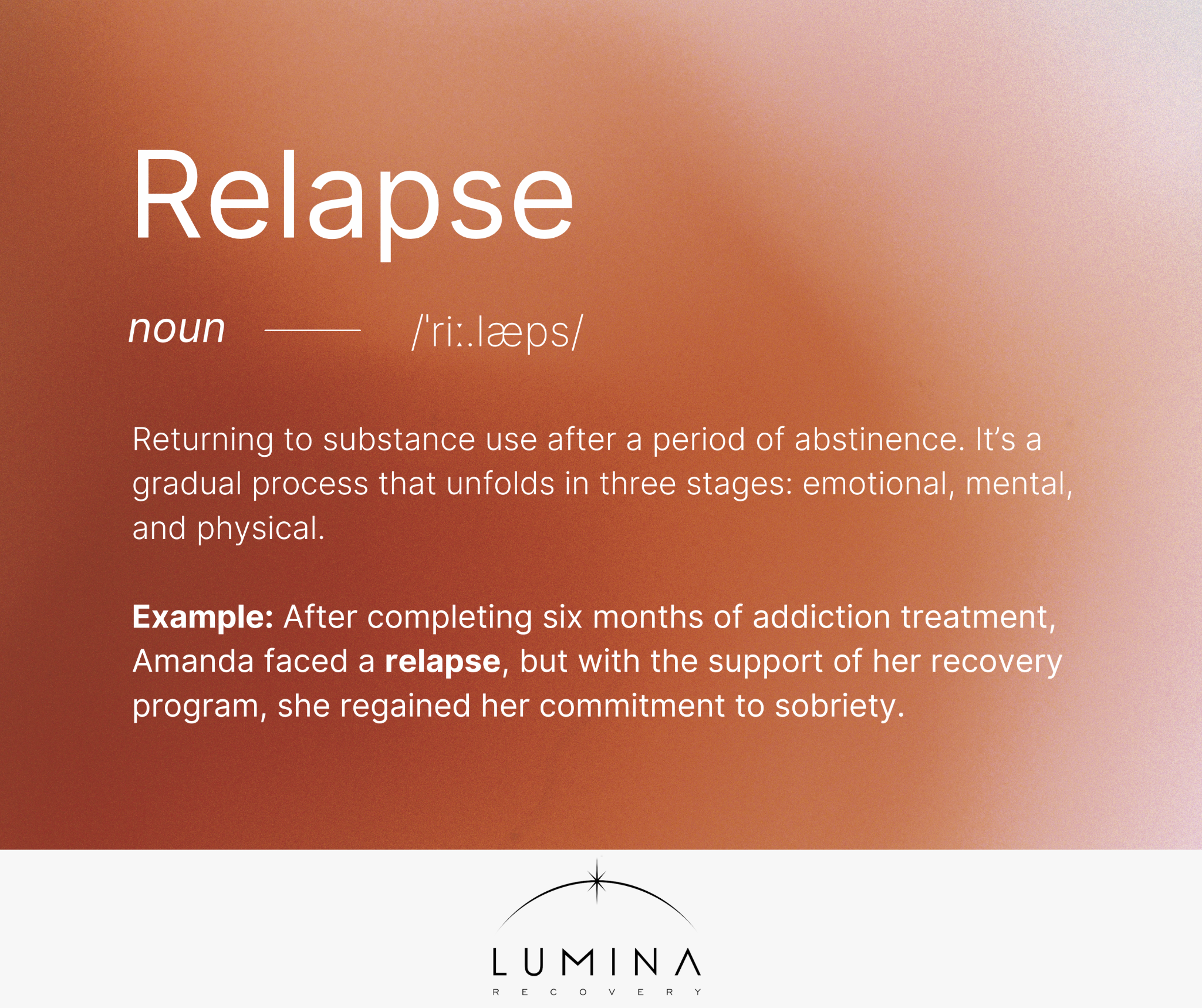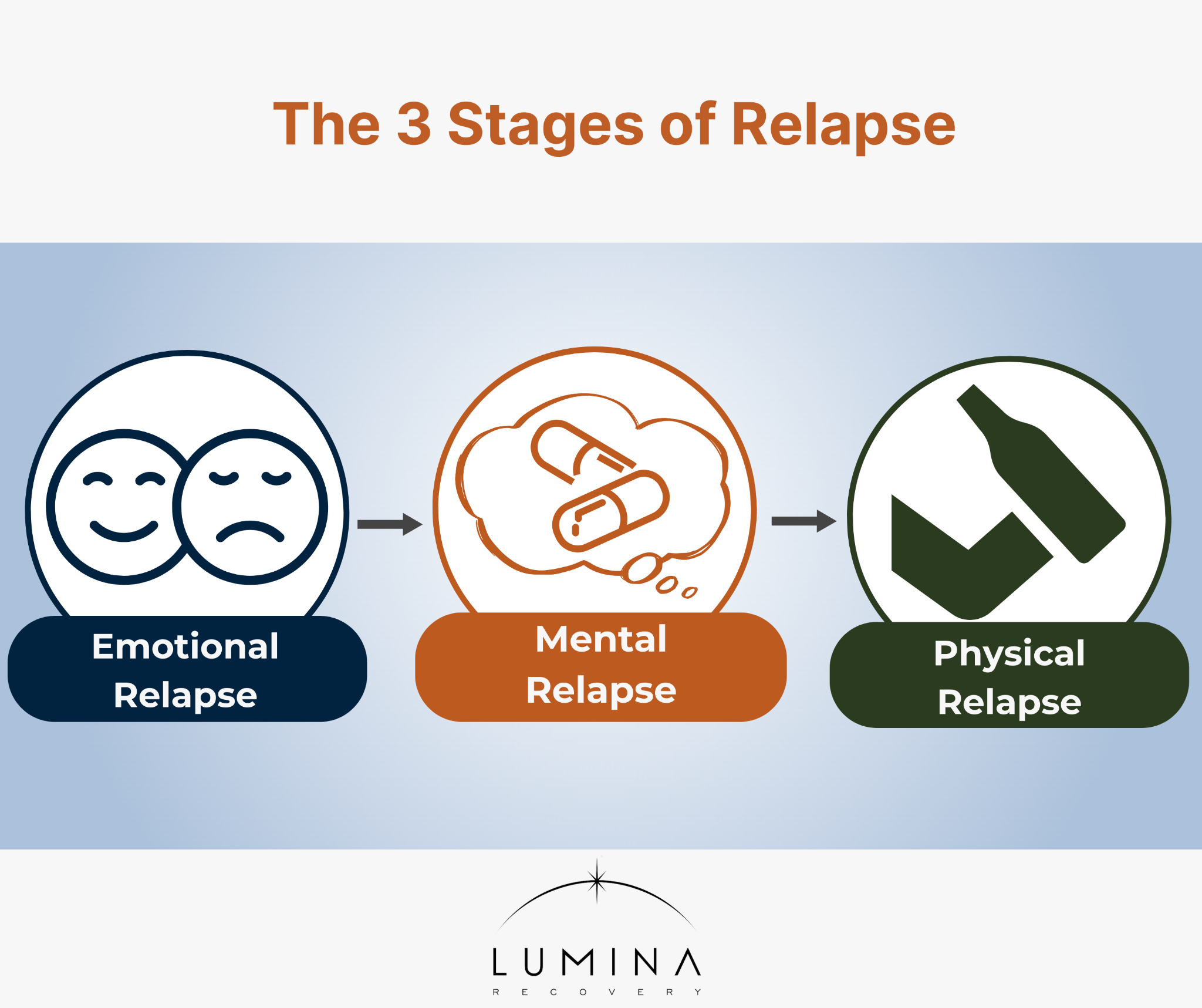
Our Addiction Resources
Navigating the world of addiction and recovery can be overwhelming. We’re here to provide clear, compassionate education and guidance. From practical advice for maintaining sobriety to informational guidance on the long-term effects of substance abuse, our content is a beacon of hope and understanding.
Our Team is Ready are ready to take your call
Call us Today!
or we can call you. Fill out form below
Our Blog

Health Conditions Caused by Heavy Drinking
Heavy drinking takes many forms, and it can lead to a variety of serious alcohol-related diseases. The CDC defines heavy drinking as having more than eight alcoholic drinks per week for women and more than 15 alcoholic drinks per week for men.1 Whether it looks like binge drinking on weekends, drinking secretly all day, or drinking as an underage or pregnant person, it’s a dangerous and damaging problem.
The long-term effects of excessive alcohol consumption can impact almost every system in the body, leading to severe health issues, including heart diseases, liver problems, cancers and more.
Heart Diseases
Heavy drinking is a significant risk factor for developing various heart diseases.2 Alcohol can negatively affect the heart in multiple ways, leading to conditions that can be life-threatening if left untreated. Chronic heavy drinking can cause high blood pressure, heart failure, and even stroke. Here are some specific heart diseases that are more likely to occur in heavy drinkers:
Types of heart disease that can be triggered by heavy drinking include:
- Cardiomyopathy: A condition where the heart muscle weakens and struggles to pump blood effectively.
- Arrhythmias: Irregular heartbeats that can lead to complications such as atrial fibrillation.
- Hypertension: Chronic high blood pressure, which increases the risk of heart attack and stroke.
- Ischemic Heart Disease: Reduced blood flow to the heart, often resulting in chest pain or heart attacks.
Alcohol’s impact on the cardiovascular system is profound, with heavy drinking causing the heart to work harder and less efficiently. Over time, this can lead to chronic conditions that significantly reduce the quality of life and increase the risk of mortality.
Liver Diseases
Heavy drinking is one of the leading causes of liver diseases, which can have severe and often irreversible effects on health.3 The liver is responsible for filtering toxins from the blood, and excessive alcohol intake can damage liver cells, leading to inflammation and scarring.
Liver diseases that can be caused by heavy alcohol use include:
- Fatty Liver Disease: Accumulation of fat in the liver cells, which can progress to more severe liver damage if heavy drinking continues.
- Alcoholic Hepatitis: Inflammation of the liver caused by excessive alcohol consumption, which can lead to liver failure in severe cases.
- Cirrhosis: Permanent scarring of the liver tissue, which impairs the liver’s ability to function and can lead to liver cancer.
These liver conditions can progress silently, often showing symptoms only when significant damage has already occurred. Regular medical check-ups and reducing alcohol intake are essential for preventing liver diseases and maintaining overall liver health.
Cancers
Heavy alcohol consumption has been linked to an increased risk of several types of cancer.4 Alcohol can damage the cells in the body, leading to mutations and the development of cancerous cells. The risk is particularly high in the digestive system, but it can also affect other areas of the body.
There are several types of cancer that have been linked to alcohol abuse, such as:
- Liver Cancer: Chronic alcohol consumption is a leading cause of liver cancer due to the development of cirrhosis.
- Breast Cancer: Even moderate alcohol consumption can increase the risk of breast cancer in women.
- Esophageal Cancer: Heavy drinking can damage the lining of the esophagus, leading to cancer.
- Throat Cancer: The risk of cancers of the throat and voice box increases with alcohol consumption.
- Mouth Cancer: Alcohol can damage the cells in the mouth, increasing the risk of oral cancer.
- Colorectal Cancer: Heavy drinking is associated with a higher risk of cancers in the colon and rectum.
The link between alcohol and cancer is well-documented, and reducing alcohol intake is a crucial step in lowering the risk of these potentially deadly diseases.
Seizures
Seizures are caused by uncontrolled, sudden disturbances in the electrical activity of the brain. They can affect everything from a person’s movements and consciousness to their feelings and behaviors. Heavy drinking can increase the risk of developing seizure disorders or trigger seizures in individuals with preexisting conditions.5
Seizure conditions linked to heavy alcohol use include:
- Alcohol-Induced Seizures: Directly caused by high levels of alcohol in the bloodstream, particularly during binge drinking episodes.
- Alcohol Withdrawal Seizures: These seizures can occur when a heavy drinker suddenly stops or significantly reduces their alcohol intake.
- Epilepsy: Heavy drinking can worsen the frequency and severity of seizures in people with epilepsy.
Alcohol has a depressant effect on the central nervous system, which can lead to seizures when consumed in large quantities. It is crucial for individuals who are heavy drinkers to seek medical advice when attempting to reduce or quit drinking to manage the risk of withdrawal seizures safely.

Digestive System Diseases
Heavy drinking can cause significant damage to the digestive system, leading to various diseases and conditions.6 Alcohol irritates the lining of the stomach and intestines, disrupting the digestive process and causing inflammation.
GI problems that can be caused or worsened by heavy drinking include:
- Gastritis: Inflammation of the stomach lining, which can cause stomach pain, nausea, and vomiting.
- Pancreatitis: Inflammation of the pancreas, which can lead to severe abdominal pain and digestive issues.
- Ulcers: Open sores that develop on the inner lining of the stomach or small intestine, often causing pain and bleeding.
- Malabsorption: Impaired absorption of nutrients from food, leading to deficiencies and weight loss.
These digestive system diseases can have a serious impact on overall health and quality of life. Reducing alcohol intake and seeking medical advice are key to preventing and managing them.
How to Get Help for Alcohol Addiction
Getting help for alcohol addiction is vital to improving and protecting your health from the damage caused by drinking. Professional treatment can provide the support and resources needed to achieve and maintain sobriety.
At Lumina Recovery, we offer comprehensive alcohol addiction treatment programs designed to address the physical, emotional, and mental health aspects of alcohol use disorder. Our expert team helps individuals regain control of their lives through personalized treatment plans that include medical detox, therapy, and ongoing support.
Contact us today to learn more about our treatment programs and take the first step toward a healthier future.
Sources:
- https://www.cdc.gov/alcohol/about-alcohol-use/?CDC_AAref_Val=https://www.cdc.gov/alcohol/fact-sheets/alcohol-use.htm
- https://www.acc.org/About-ACC/Press-Releases/2024/03/28/11/58/alcohol-raises-heart-disease-risk-particularly-among-women
- https://www.hopkinsmedicine.org/health/conditions-and-diseases/alcoholinduced-liver-disease
- https://www.cancer.gov/about-cancer/causes-prevention/risk/alcohol/alcohol-fact-sheet
- https://www.epilepsy.com/what-is-epilepsy/seizure-triggers/alcohol
- https://www.webmd.com/mental-health/addiction/addiction-heavy-drinking

Strategies to Resist Peer Pressure to Drink
Dealing with addiction recovery often means navigating a world where alcohol consumption is everywhere. Whether at social gatherings, family events, or casual hangouts, the pressure to drink is present.
For someone in recovery, this peer pressure can be a significant hurdle. Knowing how to prepare for peer pressure to drink by using practical strategies can significantly help you or your loved one stay on the path to sobriety.
What Is Peer Pressure?
Peer pressure can come from various sources, each with its own dynamics and challenges. Understanding these sources is the first step in developing effective strategies to resist them.
- Friends and Social Circles: Friends often want to share experiences, and drinking can be a part of that. They may pressure you to drink to feel included or to maintain the group’s social dynamic.
- Family Gatherings: Family events often involve alcohol, and relatives may encourage drinking as part of tradition or celebration.
- Work Environments: Office parties and networking events can also involve alcohol, where colleagues might encourage drinking to fit in or unwind.
Deflection Strategies
Knowing how to deal with peer pressure to drink alcohol can involve deflecting it and diverting the conversation, or finding ways to say no without feeling awkward or uncomfortable.
1. Change the Subject
When someone offers you a drink, instead of focusing on the refusal, shift the conversation to a different topic. If a friend says, “Can I get you a beer?” you could respond with, “No thanks, but I’d love to hear more about that new project you’re working on.” This approach not only diverts attention but also shows genuine interest in the person you’re talking to, which can make the refusal less noticeable.
2. Use Humor
Humor can be a great tool to deflect peer pressure without creating tension. If someone insists you have a drink, you could joke, “No thanks, if I had a drink, I’d be the one dancing on tables and no one wants to see that!” Using humor can lighten the mood and deflect the pressure without making the situation uncomfortable.
3. Offer Alternatives
Suggesting a non-alcoholic alternative can help steer the conversation away from drinking. If someone offers you a drink, you could say, “I’ll pass on the beer, but sparkling water would be great.” This shows that you’re still willing to partake in the social aspect of the event without consuming alcohol.
4. Express Appreciation
Showing gratitude while declining can soften the refusal. If a friend offers you a drink, you might respond with, “Thanks for thinking of me, but I’m good with just my soda.” This way, you acknowledge their gesture without accepting the drink.
5. Use Personal Goals as a Reason
Sometimes, stating a personal goal or commitment can be an effective way to deflect pressure. You could say, “I’m training for a marathon and alcohol affects my performance, so I’m sticking to water tonight.” People are generally respectful of personal goals and this gives a clear, understandable reason for your refusal.
6. Be Honest and Direct
If you feel comfortable, a straightforward approach can also be effective. Simply saying, “I’ve decided not to drink tonight,” or “I’m working on my sobriety,” can be powerful. Honesty can often earn you respect and reduce future pressures.
7. Carry a Non-Alcoholic Drink
Having a drink in hand can reduce the frequency of offers. Hold a soda, mocktail, water, or a non-alcoholic beverage throughout the event. This can create the appearance that you’re already partaking, which often deters further offers.
8. Bring Your Own Drink
Bringing your own non-alcoholic drink to a party can be a great way to avoid alcohol offers. You can say, “I brought my favorite sparkling water, so I’m all set.” This not only avoids peer pressure but also ensures you have a beverage you enjoy.

Setting Boundaries
Setting clear boundaries is crucial in resisting peer pressure. It involves being honest and assertive about your limits and expectations. Here are some strategies to help you set and maintain boundaries:
Be firm. When saying no, be clear and assertive. “I don’t drink anymore, but thanks for offering.” Being firm leaves no room for ambiguity and reduces the likelihood of repeated offers.
Use “I” statements. Frame your boundaries in terms of your needs and experiences. “I feel much better when I don’t drink, so I’ve decided to stay sober.” This approach centers your perspective and makes it personal.
Prepare responses in advance. Have a few prepared responses ready for when you’re offered a drink. “I’m good with my soda, thanks,” or “I’m not drinking tonight, but let’s catch up.” Being prepared helps you respond confidently.
Removing Yourself From the Situation
There are times when the best strategy is to remove yourself from a situation where the pressure to drink is too high. Knowing when and how to do this can be vital for maintaining your sobriety.
Plan your exit. If you anticipate heavy drinking at an event, have a plan to leave early. “I have an early morning, so I’ll be heading out soon.” This allows you to participate without feeling pressured to stay longer than you’re comfortable.
Bring a sober friend. Attend events with a friend who shares and supports sobriety. “Hey, let’s go together and keep each other company.” Having someone with you can make it easier to resist pressure and leave if necessary.
Know when to leave. If the pressure becomes too intense, don’t hesitate to excuse yourself. “It’s been great, but I need to head out.” Leaving a situation that feels overwhelming is a powerful way to protect your sobriety.
Avoiding Peer Pressure Before It Starts
Preemptive strategies can help you avoid peer pressure to drink alcohol altogether, making it easier to maintain your sobriety.
Establish boundaries early. Let people know your stance on drinking before any social events. “Just a heads-up, I won’t be drinking at the party tonight.” This sets clear expectations and reduces the likelihood of being pressured.
Choose your events wisely. Attend gatherings where you know drinking won’t be the main focus. “I’d love to join you for a hike this weekend instead of the usual bar outing.” Look for activities that don’t revolve around alcohol.
Plan non-alcoholic activities. Suggest alternatives to alcohol-centric events. “How about we go to a movie or have a game night instead?” By proposing different activities, you can enjoy socializing without the pressure to drink.
Have a support system. Build a network of friends and family who respect and support your sobriety. “Let’s hang out with people who enjoy doing things without drinking.” Surrounding yourself with supportive people makes it easier to resist pressure.
Find Support for Peer Pressure and Drinking With Lumina Recovery
Resisting peer pressure to drink is a critical skill for maintaining sobriety. By understanding the sources of peer pressure, using deflection strategies, setting boundaries, knowing when to remove yourself from a situation, and using preemptive measures, you can navigate social scenarios with confidence.
Lumina Recovery offers comprehensive therapy options and an effective alcohol addiction treatment program to help you stay sober and thrive.
If you or a loved one needs support for alcohol addiction, do not hesitate to contact our addiction treatment specialists today.

Explaining the Recovery “Pink Cloud”
Recovery from addiction is a journey filled with many phases and emotions. One of these phases, often encountered early in the process, is known as the “pink cloud.” Understanding this phase is crucial for anyone on the path to sobriety, as well as their loved ones.
What Is the Pink Cloud in Recovery?
The pink cloud is a term used in addiction recovery to describe a temporary phase of elation and euphoria. This phenomenon typically occurs in the early stages of sobriety, where individuals feel an overwhelming sense of happiness and optimism. It is often seen as a honeymoon phase of recovery, where the individual feels confident and invincible. This phase can be incredibly encouraging, providing a much-needed boost to the person’s motivation and hope.
During this phase, people in recovery often feel as though they’ve regained control over their lives. They experience a profound sense of relief from the burden of addiction, and their outlook on life becomes significantly more positive. This can be a vital period for building momentum and reinforcing the decision to stay sober. However, it is important to remember that the pink cloud is a temporary state and not an indicator of permanent recovery.
The pink cloud can vary in duration, lasting anywhere from a few days to several months. It is influenced by several factors, including the individual’s personality, the substance they were addicted to, and the circumstances of their recovery journey. Recognizing that this phase is temporary can help individuals prepare for the challenges that lie ahead and maintain a realistic perspective on their recovery process.
Pink Cloud Signs and Symptoms
Reaching sobriety feels amazing, and it’s worth celebrating. As a person’s physical health, mental wellness, and relationships begin to improve, the rush of positive changes can be almost overwhelming. However, while the pink cloud recovery experience can be a positive one, it is always temporary. It’s important to learn to manage your expectations so you can avoid disappointment when this period ends.
Here are some common indicators of “pink clouding”:
- Feeling extremely happy and positive, often more than usual
- A sudden increase in energy and enthusiasm for activities and daily life
- Believing that recovery is easier than expected and underestimating future challenges
- A strong feeling that everything will be great from now on and problems will be easily solved
- An intense focus on future plans and dreams, sometimes neglecting current responsibilities
- Significantly less anxiety about staying sober, possibly feeling overly secure
It’s important to enjoy and appreciate these positive feelings, but it’s just as important to remember that long-term recovery is a commitment that will take ongoing work. It won’t always feel easy, and that’s normal!

Stages of Pink Clouding
Understanding the stages of the pink cloud phase can help individuals and their support networks navigate this period more effectively.
Stage 1: Initial Euphoria
The first stage of the pink cloud is characterized by a sudden and intense feeling of happiness and relief. After the initial struggle to quit substances, this euphoria can feel like a reward. The individual may feel liberated and free from the chains of addiction, experiencing life with a newfound clarity and joy.
During this stage, many people feel an overwhelming sense of gratitude for their second chance at life. This gratitude can be a powerful motivator, encouraging individuals to fully engage with their recovery program and make the most of the opportunities available to them. The initial euphoria can also strengthen their resolve to remain sober, as they vividly remember the pain and chaos of their addiction.
Stage 2: Increased Optimism
Following the initial euphoria, the individual often enters a phase of increased optimism. They begin to see the possibilities of a sober life and feel hopeful about the future. During this stage, they may set ambitious goals and plans, fueled by their newfound positive outlook.
This phase can be a double-edged sword. While optimism can drive positive actions and foster a proactive approach to recovery, it can also lead to unrealistic expectations. Individuals might start to believe that their recovery journey will be smooth and free of significant challenges, which can set them up for disappointment later on.
Stage 3: Overconfidence
As optimism grows, it can lead to overconfidence. In this stage, individuals might underestimate the challenges of long-term recovery. They may believe that they have conquered their addiction and that staying sober will be easy from this point forward. This overconfidence can sometimes result in complacency or neglecting ongoing support and treatment.
Overconfident individuals may let their guard down too soon. They might start skipping meetings, therapy sessions, or other crucial aspects of their recovery program. If they’re not actively preparing themselves to face triggers and challenges, however, they’ll have a much higher risk of relapse.
Stage 4: Reality Check
Eventually, the pink cloud begins to fade, and reality sets in. The individual starts to face the everyday challenges and stressors that come with a sober life. The initial euphoria diminishes, and they may experience a range of emotions, including frustration, sadness, or anxiety. This stage is crucial as it tests their commitment to recovery.
The reality check phase can be a difficult but necessary part of the recovery journey. It is during this time that individuals must rely on the skills and coping mechanisms they have developed in treatment. Support from loved ones, counselors, and peers becomes especially important, as they navigate the ups and downs of a sober life. Successfully overcoming the reality check phase can strengthen their resolve and prepare them for the long-term challenges of maintaining sobriety.
Find Lasting Sobriety at Lumina Recovery
At Lumina Recovery, our comprehensive treatment programs are designed to support you through every phase, including the pink cloud. We offer personalized treatment plans tailored to meet your specific needs, comprehensive care including medically assisted detox, residential treatment, outpatient services, medication-assisted therapy (MAT), and aftercare support.
Contact Lumina Recovery today to learn more about our substance abuse treatment programs and how we can help you achieve your recovery goals!

Exploring the Benefits of Creativity and Art for Sobriety
Creativity and art can play a significant positive role in the journey to sobriety. The mental health benefits of art can help individuals in recovery to find new ways to express themselves and cope with their emotions. You don’t have to be an artist or possess exceptional talent to experience these benefits.
Creativity and the Brain
Creativity has a profound impact on the brain. Engaging in creative activities stimulates various parts of the brain, enhancing cognitive functions and promoting emotional well-being. When individuals participate in creative processes, their brains release dopamine, a neurotransmitter associated with pleasure and motivation. This can create a natural high, offering a positive alternative to the highs associated with substance use.
Creative activities also engage the brain’s default mode network (DMN), which is involved in self-reflection and daydreaming. This can help individuals in recovery to process their thoughts and emotions more effectively, fostering a deeper understanding of themselves and their journey.
Creative and Artistic Outlets for Sobriety
There are numerous creative and artistic outlets that can support sobriety. These activities provide a constructive way to channel emotions and reduce stress. Here are some beginner-friendly options that anyone can try as a healthy outlet during recovery.
Painting and Drawing
Painting and drawing are excellent ways to express emotions and thoughts that might be difficult to articulate. These activities don’t require any special skills or training—simply putting brush to canvas or pencil to paper can be incredibly therapeutic.
Writing and Journaling
Writing and journaling allow individuals to explore their thoughts and feelings in a structured way. Keeping a journal can help track progress, set goals, and reflect on personal growth. Creative writing, such as poetry or short stories, can also be a powerful outlet for expression.
Music and Singing
Music is a universal language that can evoke deep emotions. Playing an instrument or singing can be particularly therapeutic, offering a way to express and release feelings. Even listening to music can have a calming effect and provide comfort during challenging times.
Crafting and DIY Projects
Engaging in crafting or DIY projects can be a fulfilling way to spend time and focus on positive activities. From knitting and crocheting to building and decorating, these activities can boost self-esteem and provide a sense of accomplishment.
Dance and Movement
Dance and movement allow for physical expression of emotions. Participating in dance classes or simply moving to music at home can help release tension and improve mood. The physical activity involved also contributes to overall well-being.
Photography
Photography—even just simple smartphone photography—is a wonderful way to capture the beauty of the world and express creativity. It encourages individuals to explore their surroundings and see things from a new perspective. Sharing the photography on Instagram or other social media can also be a great way to interact with supportive loved ones.
Cooking and Baking
Cooking and baking can be incredibly therapeutic and satisfying. Experimenting with new recipes and creating delicious meals or treats can boost mood and provide a sense of accomplishment. It’s also a great opportunity to learn or improve a valuable life skill.

Mental Health Benefits of Art for Sobriety
Incorporating creative activities into daily life offers several mental health benefits that can support sobriety.
Stress Reduction
Engaging in creative activities can significantly reduce stress. The act of creating art allows individuals to focus on the present moment, providing a break from worries and negative thoughts. This mindfulness can lead to a sense of calm and relaxation.
Emotional Expression
Art offers a safe and non-verbal way to express complex emotions. For those in recovery, this can be particularly beneficial as it allows them to process feelings that might be difficult to articulate. Through creativity, individuals can explore and release emotions, contributing to emotional healing.
Improved Self-Esteem
Completing a creative project, no matter how simple, can boost self-esteem and provide a sense of accomplishment. This can be especially important in recovery, where building confidence and a positive self-image are crucial.
Enhanced Coping Skills
Creative activities can serve as healthy coping mechanisms. Instead of turning to substances to deal with stress or negative emotions, individuals can use art and creativity to navigate challenges. This helps build resilience and fosters healthier ways to handle life’s difficulties.
Social Connection
Participating in group creative activities can also foster social connections. Whether it’s a painting class, a writing group, or a dance workshop, these activities provide opportunities to meet others with similar interests, reducing feelings of isolation and building a supportive community.
A Sense of Play
Engaging in creative activities encourages a healthy sense of play, which can be rejuvenating and stress-relieving. This sense of playfulness can help individuals approach life with a more positive and open mindset, essential for recovery.
Processing Loss and Trauma
Creative outlets can be particularly beneficial in processing loss and trauma. Art provides a way to explore and express deep emotions that might be difficult to confront directly, aiding in the healing process.
Opportunities for “Flow”
Creative activities often lead to a state of “flow,” where individuals become fully immersed and lose track of time. This flow state can be incredibly satisfying and provide a much-needed escape from daily stresses, promoting overall well-being.
Achieve and Maintain Lasting Sobriety at Lumina Recovery
At Lumina Recovery, we understand the importance of incorporating creative outlets into the recovery journey. While we don’t offer formal art therapy, we encourage our clients to explore various creative activities as part of a holistic approach to sobriety. We focus on helping you build your mental health and self-esteem, creating a strong foundation for exploring creative outlets that can aid in healing.
Our comprehensive therapy options are designed to address the unique needs of each individual, ensuring you receive the personalized care necessary for lasting recovery. After treatment, our sober living homes provide a supportive environment where you can continue your recovery journey in a safe and structured setting.
If you’re ready to start your recovery journey, contact us today to learn more about how we can help.

How to Relax Without Alcohol
Alcohol is often marketed as a quick fix for stress relief, but it can harm both physical and mental health. According to a 2022 survey, 29.5 million Americans aged 12 and older met the criteria for alcohol use disorder (AUD) in the past year.1 This problematic drinking can lead to heart disease, cancer, liver damage, and weakened immunity. While alcohol may temporarily ease stress, it can worsen mental health conditions like depression and anxiety and can lead to addiction, impacting relationships and work.
Many turn to alcohol for relaxation, but it’s a depressant that sedates the central nervous system, lowering energy levels and impairing cognitive function. Excessive alcohol use is a major public health concern, costing the U.S. $249 billion annually and contributing to various accidents and fatalities.2
In our alcohol-centric culture, excessive drinking has often been glorified and accepted as “normal.” However, a shift is occurring. More people are choosing alternatives to alcohol, driven by growing health awareness, changing social norms, and a desire for more meaningful experiences.
Instead of heading to the bar after work, skip the traditional ‘happy hour’ and explore activities that activate your brain’s reward centers. You’ll likely find more enduring peace and relaxation through social hobbies, physical activities, or therapeutic practices. Below are some relaxing, alcohol-free options you can enjoy.
Join an Alcohol-Free Social Club
Socializing releases oxytocin, the “bonding hormone,” promoting feelings of relaxation. With alcohol-free social clubs on the rise in America, these venues offer an exhilarating atmosphere akin to traditional nightclubs, featuring pulsating beats, dimmed lights, and energetic dance floors. Here, individuals can master the art of socializing without alcohol, all while savoring creative and delicious non-alcoholic drinks, known as mocktails.
If venues like this aren’t in your area yet, you can also host alcohol-free get-togethers, or look for social events that normally don’t involve drinking or bring a sober support system to ones that do. Activities can include:
- Dancing and Dance Classes: Step onto the dance floor, let the beats move you, and learn the tango, foxtrot, rumba, and salsa.
- Live Music and Entertainment: Experience the thrill of live performances, from rock bands to orchestras, while comedy shows provide laughter, the best medicine for the soul.
- Board Games and Social Games: Engage in board games that transport you to different worlds, while trivia nights boost connections and cognitive thinking.
- Art and Creativity: Participate in workshops such as art classes, poetry readings, pottery, and ceramics to soothe your mind and express yourself.
Aromatherapy Baths
Aromatherapy, derived from the Greek roots “aroma” (fragrance) and “therapeia” (healing), has a rich history that dates back to ancient civilizations. Adding essential oils to bathwater allows their fragrances to stimulate the olfactory system, helping to calm negative thoughts, reduce stress, and promote relaxation. Soothing options include:
- Lavender: Renowned for its calming effects, promoting relaxation and stress reduction.
- Chamomile: Known for its gentle, soothing properties, perfect for unwinding after a long day, especially if you’re tempted to drink alcohol post-work stress.
- Ylang-Ylang: With its exotic floral scent, helps ease tension and uplifts the spirit.
Remember to dilute essential oils in a carrier oil before adding them to your bath. The Tisserand Institute recommends a 1 to 4 percent dilution rate. Mix the diluted essential oil into a small amount of liquid in a bottle, shake vigorously, add just before getting in, and enjoy your relaxing soak.
Cooking Classes
Learning something new, like taking a cooking class with a friend, can positively impact your brain and body, especially for relaxation and stress management:
- Nourish Your Body: Enroll in specialized healthy cooking classes to master the art of crafting nutritious meals that boost overall well-being.
- Discover New Flavors: Delight your taste buds by incorporating a new food or spice into your meals each week, offering a refreshing escape without relying on alcohol.
- Escape From Stress: Immerse yourself in the joy of cooking classes, providing a dynamic and engaging outlet to distance yourself from stress and cravings.
- Embrace Mindfulness: Engage in the mindful practice of cooking, where focus and concentration soothe the mind and alleviate racing thoughts.
- Unleash Your Creativity: Unleash your inner chef by experimenting with diverse flavors and innovative presentations, igniting creativity and fostering therapeutic relaxation.
Wellness Workshops
Discover the transformative power of wellness workshops, where you’ll find safe havens for self-care and self-reflection, igniting inner growth. These immersive experiences will guide you back to your true essence, fostering inner peace and empowerment, all without the need for alcohol. Try these relaxing activities:
- Guided Breathwork Sessions: Certain breathing techniques can help release emotional blockages and help you better deal with stressful situations.
- Sound Healing Sessions: Soothing melodies can help promote relaxation and emotional release.
- Yoga: Adopting a consistent yoga practice can help build a deep connection between the body and mind with focused movement and breathing exercises.
- Massage and Spa Treatments: Physical touch and pamper sessions can help release tension and revitalize both your body and mind.
- Mindfulness Meditation: Cultivating present-moment awareness and inner tranquility can help reduce feelings of stress and anxiety.

Exercising Outdoors
Spending time in nature, with its serene environment and immersive soundscapes, benefits both the body and spirit. Whether wandering through a forest, strolling along a beach, or trekking atop a mountain, the beauty of nature exudes a positive influence on mood while providing fresh air and heightened oxygen levels, rejuvenating both body and mind.
Unlike alcohol, exercise genuinely reduces stress, both immediately and in the long term, while releasing endorphins that trigger positive feelings. Just a few outdoor exercise options include:
- Hiking, Nature Walks, and Trail Running: Scenic trails offer a fantastic cardiovascular workout with varied terrain.
- Cycling: Pedal through natural landscapes, enhancing fitness and fostering a deeper connection with nature.
- Kayaking or Canoeing: Engage your upper body and indulge in peaceful water escapes.
- Rock Climbing: Challenge yourself with a fusion of physical strength, mental focus, and the exhilaration of conquering natural formations.
If incorporating alternative relaxation techniques instead of alcohol feels challenging, or if you find that drinking has begun to negatively impact various areas of your life, reach out to a professional for support. Remember, you are not alone.
Why Choose Lumina Recovery for Alcohol Addiction Treatment
At Lumina Recovery, we don’t just treat alcohol addiction—we aim to transform lives. We stand as a pillar of hope and healing, dedicated to delivering innovative solutions for alcohol addiction treatment.
We approach each individual with empathy and understanding, providing a supportive environment to initiate the healing process.
If you or a loved one is struggling with alcohol use, reach out to our team today. We’re here for you every step of the way, offering understanding and compassion.
Sources:

Mommy Wine Culture: Unmasking Hidden Alcoholism
Motherhood is a challenging yet rewarding journey. However, many moms feel overwhelmed by the constant demands of parenting, leading to a troubling trend known as “mommy wine culture.” This phenomenon encourages mothers to unwind with alcohol, often masking the deeper issues of stress and potential alcoholism. Understanding mommy wine culture and its impact can help address these hidden problems and provide healthier alternatives for coping.
What Is Mommy Wine Culture?
Mommy wine culture is a social trend that normalizes and even glorifies the consumption of alcohol, particularly wine, as a coping mechanism for the stresses of motherhood. It’s depicted in wine mom memes, social media posts, and even merchandise, often with messages like “Mommy needs wine” or “Wine o’clock.” This culture portrays drinking as a necessary and harmless escape for moms juggling numerous responsibilities.
The rise of mommy wine culture can be attributed to various factors, including social media influence, marketing by alcohol companies, and the pressures of modern parenting. Social media platforms are flooded with posts from moms joking about their reliance on wine to get through the day. Alcohol companies have capitalized on this trend by targeting their marketing towards mothers, reinforcing the idea that drinking is a normal part of parenting.
Why Does It Appeal to Moms So Much?
For many mothers, the appeal of wine mom culture lies in the camaraderie and shared experience. It provides a sense of belonging and a socially acceptable way to express the challenges of motherhood. However, what starts as a casual indulgence can quickly become a dependency, leading to significant health and social problems.
It’s not that drinking a glass of wine on a “girl’s night” isn’t okay—romanticizing it as an escape from the stresses of motherhood and doing it regularly as a “hobby” is a red flag.
Negative Effects of Mommy Wine Culture
While the wine mom trend may seem harmless on the surface, it can have serious negative effects on both mothers and their families. Recognizing these risks is crucial for promoting healthier coping strategies and overall well-being.
Physical Health Risks
Regular consumption of alcohol can lead to a range of health issues, including liver disease, heart problems, and an increased risk of cancer. For mothers, these health risks are compounded by the physical demands of parenting, making it harder to maintain overall well-being.
Mental Health Issues
Alcohol is often misused as a quick fix for stress and anxiety, but it can exacerbate these conditions in the long run. Dependency on alcohol can lead to depression, anxiety disorders, and other mental health problems, creating a vicious cycle that is hard to break. Alcohol can also worsen symptoms in people who already have mental health conditions.
Impact on Family Dynamics
Alcohol abuse can strain family relationships, affecting the well-being of children and partners. Children may feel neglected or confused by their mother’s behavior, leading to long-term emotional issues. Partners may struggle with the added responsibility and stress, creating further tension within the household.
Normalization of Alcoholism
In many ways, mommy wine culture normalizes and trivializes the serious issue of alcoholism. By presenting drinking wine often as a normal part of motherhood and even a form of self-care, it can prevent mothers from recognizing the signs of addiction and seeking help.
Social Media Distortion
The social media element of mommy wine culture can create major social pressure. As algorithms show more of this content, it can give moms a distorted idea that heavy drinking is part of having “a real mommy experience.” This constant exposure can lead mothers to feel that excessive drinking is somehow an essential part of coping with the stresses of motherhood.

Tips for Avoiding Mommy Wine Culture
Breaking free from mommy wine culture requires awareness and proactive steps towards healthier coping mechanisms. Here are some tips to help avoid falling into the trap of alcohol dependency.
1. Find Healthy Stress Relievers
Identify and practice healthier ways to manage stress. This could include exercise, meditation, or engaging in hobbies that bring joy and relaxation. Physical activity, in particular, has been shown to reduce stress and improve mental health.
2. Build a Support Network
Connect with other mothers who share similar experiences but promote healthy coping strategies. Join support groups, either in-person or online, where you can share your challenges and receive encouragement without the focus on alcohol.
3. Set Clear Boundaries
Establish boundaries around alcohol consumption. This might mean setting limits on how much you drink or avoiding situations where heavy drinking is encouraged. Communicate your boundaries to friends and family to ensure they support your efforts.
4. Educate Yourself
Learn about the risks associated with regular alcohol consumption and the signs of dependency. Understanding the potential consequences can help reinforce your commitment to avoiding mommy wine culture.
5. Know What Being Responsible Looks Like for You
Occasional social drinking is generally safe for most people, but not everyone has the same risk of addiction. A friend may be able to lightheartedly joke about wine being a need, but if you have a family history of addiction or other risk factors for alcoholism, it’s not such a light matter. Knowing your limits and understanding the signs of dependency are key to maintaining a healthy relationship with alcohol.
6. Seek Professional Help
If you ultimately find yourself struggling to stop drinking, or if you’re concerned that mommy wine culture has led a loved one into addiction, don’t hesitate to seek professional help. Counseling or therapy can provide valuable tools and support to address underlying issues and develop healthier coping mechanisms.
Get Help for Alcohol Addiction at Lumina Recovery
Recognizing the harmful effects of mommy wine culture is the first step towards recovery. At Lumina Recovery, we offer comprehensive alcohol addiction treatment programs tailored to meet the unique needs of mothers and their families. Our approach includes outpatient treatment options, allowing you to receive the care you need while maintaining your daily responsibilities.
Our programs include family therapy sessions to help rebuild trust and improve communication within the household. By involving the entire family, we aim to create a supportive environment that fosters long-term recovery.
Reach out to Lumina Recovery today to start your journey towards a healthier, alcohol-free life.

Glossary of Terms for Understanding Alcohol Addiction
Understanding alcohol addiction is an important part of recognizing the symptoms and challenges of alcohol addiction. Also known as alcoholism, this addiction affects millions of people and their loved ones worldwide. Professional treatment is an invaluable tool for overcoming addiction, providing structured support and resources for those who are struggling.
This glossary of substance abuse terminology will help demystify the language surrounding alcohol addiction and its treatment, educating individuals and making it easier to communicate with healthcare providers.
Alcohol Addiction Terminology
Alcohol Abuse
Alcohol abuse is a general term for any pattern of drinking that repeatedly leads to negative consequences. Individuals may neglect responsibilities, engage in dangerous behaviors, or experience legal problems due to their drinking.
Alcoholic
Alcoholic is a term used to describe someone who is addicted to alcohol. The word carries some stigma and may be used negatively to denigrate people with alcohol addiction. People wishing to offer support should understand the kind of language their loved one prefers to use.
Related addiction terms include “high-functioning alcoholic” or “functional alcoholic,” which are sometimes used to describe someone who seems to be capable at work and in daily life despite their heavy alcohol use. The truth is that they’re still struggling with a severe and damaging addiction that requires help.
Alcohol Use Disorder (AUD)
AUD is a diagnosed medical condition that is marked by an impaired ability to quit or cut down on drinking alcohol, even in the face of serious consequences to their relationships, job, and health. It ranges from mild to severe and is diagnosed based on specific criteria.
Binge Drinking
Binge drinking is the consumption of an excessive amount of alcohol in a short period. For men, it typically means drinking five or more drinks in about two hours; for women, it means four or more drinks.
Blackout
A blackout is a period of amnesia during which a person actively engages in behaviors but cannot remember afterward due to excessive alcohol consumption.
Craving
Craving is a strong urge or desire to drink alcohol, often occurring in individuals with alcohol addiction. It is a significant factor that can lead to relapse during the recovery process.
Delirium Tremens
Delirium tremens (DTs) is a severe, dangerous symptom of alcohol withdrawal that involves sudden and severe mental or nervous system changes. Symptoms include confusion, rapid heartbeat, fever, and hallucinations. DTs require immediate medical attention.
Tolerance
Tolerance is the need to consume larger amounts of alcohol to achieve the same effects due to the body’s adaptation to its presence.
Withdrawal
Withdrawal refers to the symptoms that occur when a person who is physically dependent on alcohol stops drinking. Symptoms can range from mild anxiety and tremors to severe seizures and delirium tremens.

Alcohol Addiction Treatment Terminology
Alcoholics Anonymous (AA)
Alcoholics Anonymous (AA) is a worldwide fellowship of individuals who share their experiences, strengths, and hopes to solve their common problem and help others recover from alcoholism. AA follows a 12-step program to support sobriety.
Cognitive Behavioral Therapy (CBT)
CBT is a type of therapy that helps individuals recognize and change negative thought patterns and behaviors associated with alcohol addiction.
Detoxification (Detox)
Detoxification is the process of removing toxic substances, like alcohol, from the body. This initial stage of treatment helps manage withdrawal symptoms under medical supervision.
Dialectical Behavior Therapy (DBT)
DBT is a type of cognitive behavioral therapy that combines strategies like mindfulness, emotion regulation, distress tolerance, and interpersonal effectiveness to help individuals manage their emotions and behaviors.
Dual Diagnosis
Dual diagnosis refers to the presence of both a substance use disorder and a mental health disorder in an individual. Treatment for dual diagnosis addresses co-occurring conditions simultaneously.
Inpatient Treatment
Inpatient treatment, also known as residential treatment, involves staying at a residential facility for a period to receive intensive treatment and support for alcohol addiction.
Medication-Assisted Treatment (MAT)
MAT involves using appropriate medications to help with alcohol addiction treatment. Medications may be used to help reduce cravings and withdrawal symptoms, or to treat a co-occurring issue.
Motivational Interviewing (MI)
MI is a counseling approach that helps individuals find the motivation to make positive changes in their behavior related to alcohol use.
Outpatient Treatment
Outpatient treatment allows individuals to receive therapy and support for alcohol addiction while living at home or in a sober living facility. It typically involves regular visits to a treatment center. Intensive outpatient programs (IOPs) are a form of outpatient treatment that requires regular attendance at therapy sessions but allows individuals to continue with their daily activities.
Partial Hospitalization Program (PHP)
A partial hospitalization program (PHP) is a structured treatment program that offers intensive therapy and support during the day but allows individuals to return home or to a sober living facility at night. PHPs provide a higher level of care than traditional outpatient treatment but are less intensive than inpatient treatment.
Relapse
Relapse is the return to alcohol use after an attempt to stop. It is a common part of the recovery process and can be triggered by stress, environmental cues, or other factors.
Relapse prevention involves strategies and techniques to help individuals recognize and manage triggers, stress, and cravings to avoid returning to alcohol use.
Sober Living Homes
Sober living homes are residential facilities that provide a structured, supportive environment for individuals transitioning from intensive treatment to independent living.
Sobriety
Sobriety refers to the state of living without alcohol. It involves abstinence from alcohol and often includes participating in support groups and ongoing treatment.
Sponsor
A sponsor is an experienced individual in a 12-step program who supports and guides a newcomer through the recovery process, offering personal experience and encouragement.
Support Groups
Support groups consist of individuals who meet regularly to discuss their experiences, challenges, and successes in recovery. They provide mutual support and encouragement.
Break Away From Alcohol Addiction at Lumina Recovery
At Lumina Recovery, we are dedicated to both treating alcohol use disorders and educating individuals about them. Our comprehensive alcohol addiction treatment programs are designed to support you through every step of your recovery journey, from medically assisted detox through relapse prevention.
If you or a loved one is struggling with alcohol addiction, call (877) 716-7515 today to learn more about our personalized treatment programs and start your journey to a healthier, alcohol-free life.

How Group Therapy Can Help With Alcohol Abuse
Overcoming alcohol addiction is a challenging journey that often requires more than just willpower. For many, the path to recovery involves a combination of therapies, support systems, and lifestyle changes.
One of the most effective tools for overcoming alcohol abuse is group therapy. Understanding what group therapy is, how it benefits those struggling with alcohol abuse, and how it integrates with other forms of therapy is an important first step in overcoming substance use disorders.
What Is Group Therapy?
Group therapy is a form of psychotherapy where one or more therapists work with a small group of individuals simultaneously. Typically, group therapy includes people who share similar issues, such as addiction to alcohol.
The therapist guides the discussion, encouraging participants to share their experiences, feelings, and strategies for coping. This collaborative environment fosters a sense of community and support among group members.
Group therapy can take various forms, each tailored to meet specific needs and goals. Support groups are often peer-led and focus on providing emotional support and sharing experiences, like Alcoholics Anonymous (AA). Cognitive behavioral therapy (CBT) groups are therapist-led and aim to change unhealthy thinking patterns and behaviors related to addiction.
Psychoeducational groups focus on educating members about addiction and recovery, providing knowledge and skills to manage their condition. Skill development groups help members build specific skills, such as coping mechanisms or social skills, that are crucial for maintaining sobriety. Interpersonal process groups delve into personal experiences and emotions, promoting self-awareness and emotional healing through open discussion.
Each type of group therapy offers unique benefits, and the best choice depends on an individual’s specific needs and stage in the recovery process.
The Benefits of Group Therapy for Alcohol Abuse
Group therapy offers numerous advantages for individuals struggling with alcohol addiction, providing a supportive and collaborative environment. By sharing experiences and learning from others, participants can develop effective coping skills, build a robust support network, and enhance their overall recovery journey.
Shared Experiences
One of the primary benefits of group therapy is the opportunity to connect with others facing similar struggles. Sharing experiences with others who understand what you’re going through can be incredibly validating and comforting. It helps to know that you are not alone in your journey.
Support Network
Group therapy provides a built-in support network. The relationships formed in these groups can be crucial for maintaining sobriety. Group members often offer each other encouragement and advice, both during sessions and outside of them. This support can be a lifeline during difficult times.
Learning From Others
Hearing about the experiences of others can provide new perspectives and strategies for dealing with addiction. Group members often share what has worked for them in their recovery process, offering practical tips and insights that can be applied to their journey.
Accountability
Being part of a group creates a sense of accountability. Regularly attending group therapy sessions and sharing progress can motivate individuals to stay on track with their recovery goals. Knowing that others are rooting for your success and will notice if you’re struggling can be a powerful motivator.
Boosting Self-Esteem
Group therapy can help build self-esteem and confidence. When individuals share their progress and receive positive feedback from the group, it can reinforce their sense of achievement and worth. Celebrating milestones together, such as a month of sobriety, can further enhance self-esteem.
Emotional Support
Addiction often involves underlying emotional issues, such as depression, anxiety, or trauma. Group therapy provides a safe space to express and process these emotions. The support and understanding from the group can help individuals feel heard and validated. Emotional support from peers can also alleviate the burden of carrying these feelings alone, making it easier to confront and address them.
Social Skills Development
Addiction can often impair social skills, making it challenging for individuals to interact with others in healthy ways. Group therapy offers a space to practice and develop these skills. Group members learn to communicate effectively, listen actively, and provide constructive feedback, enhancing their social interactions.
Normalizing the Recovery Process
Being part of a group can help normalize the recovery process. Seeing others at different stages of recovery can provide perspective and hope. It shows that setbacks are a part of the journey and that progress is possible with persistence and support. This normalization can reduce feelings of failure and encourage individuals to keep moving forward, even when they face challenges.

Group Therapy for Alcohol and Other Addictions
Group therapy is not limited to those struggling with alcohol addiction. Many groups are designed to address various forms of substance abuse. This inclusivity can be beneficial, as the coping strategies and insights gained from different types of addiction can be universally applicable. Participants can learn from a diverse range of experiences and apply these lessons to their recovery.
Integrating Relationship and Family Therapy
While group therapy is highly beneficial, it often works best when integrated with other forms of therapy, such as relationship and family therapy. Alcohol addiction doesn’t just affect the individual, but it impacts their loved ones as well. Involving family members in the recovery process can be crucial for several reasons:
1. Repairing Relationships
Addiction can strain relationships with family and friends. Family therapy aims to address these issues, fostering understanding and communication between the individual and their loved ones. This can help repair and strengthen relationships.
2. Building a Supportive Environment
Recovery is more successful when individuals have a supportive family and home environment. Family therapy educates family members about addiction and recovery, helping them understand how they can best support their loved one.
3. Identifying Triggers
Family members can help identify triggers that might lead to relapse. By understanding these triggers, they can work together to create a safer, more supportive environment that minimizes the risk of relapse.
4. Improving Communication
Effective communication is key to a successful recovery. Family therapy helps improve communication skills within the family unit, making it easier to discuss concerns, set boundaries, and provide support.
Find Group Therapy Support With Lumina Recovery
Group therapy for addiction is a powerful tool for long-term sobriety and relapse prevention. It offers a sense of community, support, and shared learning that can be invaluable on the road to recovery.
When combined with relationship and family therapy, it provides a comprehensive approach that addresses both the individual’s needs and the dynamics of their relationships with loved ones.
At Lumina Recovery, group therapy and family therapy are integral parts of our addiction treatment programs for alcohol and other substances.
If you or a loved one is dealing with alcohol abuse, reach out to our team of experienced substance abuse treatment professionals.

The Stages of Relapse: Recognizing the Warning Signs
Relapse is a common challenge in addiction recovery, but it is not an instant or isolated event. Instead, it follows a process with identifiable stages, allowing individuals and their support systems to recognize warning signs and take preventive action.
Understanding the stages of relapse can empower individuals to develop coping strategies, reduce the risk of setbacks, maintain long-term sobriety, and learn what to do when a loved one relapses.

What Is Relapse?
What does it mean to relapse? The definition of relapse in addiction refers to returning to substance use after a period of abstinence. It’s a gradual process that unfolds in three stages: emotional, mental, and physical. Recognizing these relapse stages can help individuals intervene before substance use resumes.
Recovery is a lifelong journey, and relapse does not mean failure. It highlights areas that need reinforcement and adjustment in a person’s recovery plan. Understanding the meaning of relapsing and the stages of the relapse process is crucial to successful relapse recovery.

The 3 Stages of Relapse
Recognizing the warning signs and relapse phase meanings is crucial for maintaining long-term recovery. The three stages of relapse each present different challenges that can be addressed with proper support and intervention.
1. Emotional Relapse
Emotional relapse is the first stage, occurring before an individual consciously considers using substances again. During this phase, individuals may experience:
- Mood swings and increased irritability
- Isolation from friends, family, and support groups
- Neglect of self-care, such as poor eating and sleeping habits
- Bottling up emotions rather than expressing them
At this stage, people are not actively thinking about using substances, but their behaviors and emotions may set the groundwork for future relapse. This stage represents the early warning signs of a potential drug relapse.
2. Mental Relapse
In the second stage, internal conflict emerges. A person starts thinking about using again, even though part of them wants to stay sober. Signs of mental relapse include:
- Cravings for substances
- Romanticizing substance use and forgetting its negative consequences
- Lying about struggles and hiding emotions from others
- Seeking out situations where substance use is possible
- Planning a potential relapse, rationalizing that they can control it
Recognizing these warning signs is crucial for preventing progression to the final stage. The phases and warning signs of relapse are most evident during this stage, as individuals may begin engaging in behaviors that put them at risk of using again.
3. Physical Relapse
Physical relapse is the act of returning to substance use. It often begins with a “lapse,” which is a single use, but can quickly escalate into uncontrolled substance use. This stage is often accompanied by feelings of guilt, shame, and frustration. Preventing physical relapse requires early intervention in the emotional relapse and mental relapse stages.
Despite efforts to stay sober, a person may engage in substance use again. While it can be discouraging, relapse recovery is possible with the right support and strategies. Understanding the three stages of relapse can help individuals recognize where they are in the relapse cycle and take action.
Factors Contributing to Relapse
Relapse does not happen randomly—it is often triggered by specific factors that make maintaining sobriety more challenging. Knowing these contributing factors can help individuals take proactive steps to prevent relapse.
1. Triggers
Triggers are external or internal factors that lead to cravings and increase the likelihood of relapse. Common triggers include:
- Stress and anxiety
- Environmental cues, such as places associated with past use
- Social settings where substances are present
- Negative emotions like sadness, anger, or loneliness
2. High-Risk Situations
Certain scenarios significantly increase relapse risk, including:
- Attending events where alcohol or drugs are readily available
- Spending time with individuals who still use substances
- Experiencing significant life changes, such as job loss or relationship problems
3. Coping Mechanisms
Individuals with inadequate coping strategies are more vulnerable to relapsing. Without effective methods to manage stress and emotions, they may turn back to substances for relief. Developing healthy coping mechanisms is a key part of relapse prevention.

Relapse Prevention Strategies
Preventing relapse requires a proactive approach that involves recognizing triggers, developing prevention skills, and building a strong support system. By implementing effective strategies, individuals can strengthen their resilience and maintain long-term recovery.
1. Developing Healthy Coping Skills
Practicing self-care and building resilience are essential for preventing drug relapse. Effective coping techniques include:
- Mindfulness and meditation to manage stress
- Regular exercise to improve mood and reduce cravings
- Engaging in hobbies to occupy time and provide fulfillment
- Journaling to process emotions constructively
2. Building a Support System
Recovery is not a solo journey. A strong support network can make a significant difference. Support may come from:
- Family and friends who encourage sobriety
- Support groups and group therapy
- Addiction counselors or sponsors who provide guidance
3. Creating a Relapse Prevention Plan
A personalized relapse prevention plan helps individuals recognize and respond to relapse phase warning signs. A strong relapse prevention plan includes:
- Identifying personal triggers
- Developing coping strategies
- Listing emergency contacts
- Having an accountability partner
FAQs
What does relapse mean?
Relapse is the return to substance use after a period of sobriety. It is a process that occurs in stages and can be prevented with proper intervention.
Is relapse a part of recovery?
Many individuals experience relapse multiple times during recovery. While it is not a required step, it is a common challenge that can be overcome with support and prevention strategies.
How long does a relapse usually last?
The duration of relapsed substance use varies. Some individuals may experience a single-use lapse, while others might struggle with prolonged substance use before seeking help again.
What is a relapse cycle?
A relapse cycle refers to the pattern of progressing through the three stages of relapse, from emotional relapse to mental relapse, and ultimately physical relapse.
What precedes a relapse?
Common precursors to relapsing include stress, isolation, exposure to triggers, lack of self-care, and failure to address emotional struggles.
Overcome Relapse and Move Forward With Lumina Recovery
Relapse is a part of many recovery journeys, but it does not define a person’s success. By recognizing the stages of relapse, identifying personal triggers, and developing effective coping strategies, individuals can regain control and continue their path to sobriety.
At Lumina Recovery, we offer inpatient treatment and cognitive behavioral therapy (CBT) to help individuals strengthen their resilience and build long-term recovery.
If you or a loved one needs support, contact us today to start your journey toward lasting healing.
Additional Resources
Once you have completed your rehabilitation program at one of our drug and alcohol treatment centers, you should try to surround yourself with people who can encourage you to stay sober. Many people find that support groups are the best source of encouragement. You can find hundreds of support groups and meetings in your community. Our drug addiction treatment centers stress the importance of personal chemical dependency resources, especially when you are new to sobriety. Below are various addiction and mental health resources for people in recovery who want additional support.
Christian Addiction Recovery Resources
Our substance abuse services aren’t limited to specific programs, but rather we believe in the importance of incorporating faith-based programs to promote spiritual healing, like our Faith in Recovery program.
With that said, below are some faith-based addiction recovery resources that could help you in your spiritual healing from addiction:
- Battlefield of the Mind by Joyce Meyer
- Boundaries by Dr. Henry Cloud & Dr. John Townsend
- Christian Families in Recovery: A Guide for Addiction, Recovery, and Intervention Using God’s Tools of Redemption by Robert and Stephanie Tucker
- Club New Life Christian Ministry for Addiction and Recovery
- Lost & Found: Recovery in Christ by Bruce Stanley
- Overcoming Emotional Obstacles through Faith: Navigating the Mind Field by Anthony Acampora, Director of Banyan’s Faith in Recovery Program
- The Case for Christ by Lee Strobel
Mental Health Resources for Recovery
Lumina Recovery consist of both mental health and substance abuse treatment facilities, meaning we offer mental health resources as well as chemical dependency resources. What’s more, addiction often co-occurs with mental illness, making these resources ever more important.
Below are some resources for mental health recovery that can help you or your loved one:
- This Emotional Life video series
- No Kidding, Me 2!! with Joe Pantoliano
- Dare: The New Way to End Anxiety and Stop Panic Attacks by Barry McDonagh
- Pleasure Unwoven: An Explanation of the Brain Disease of Addiction by Kevin McCauley
- Declutter Your Mind: How to Stop Worrying, Relieve Anxiety, and Eliminate Negative Thinking by S.J. Scott and Barrie Davenport
Call Us Today – (877) 716-7515

